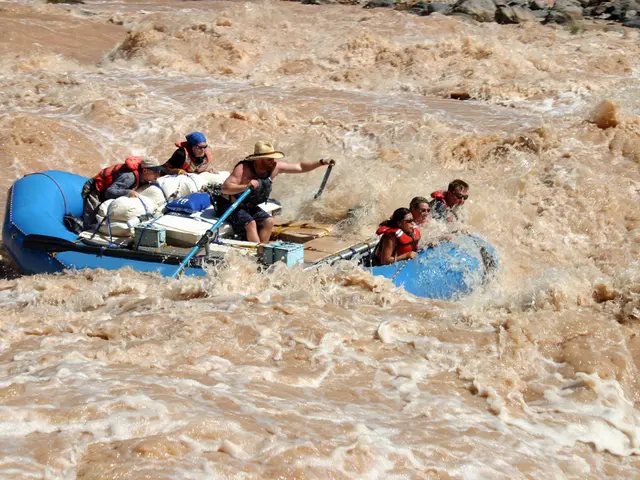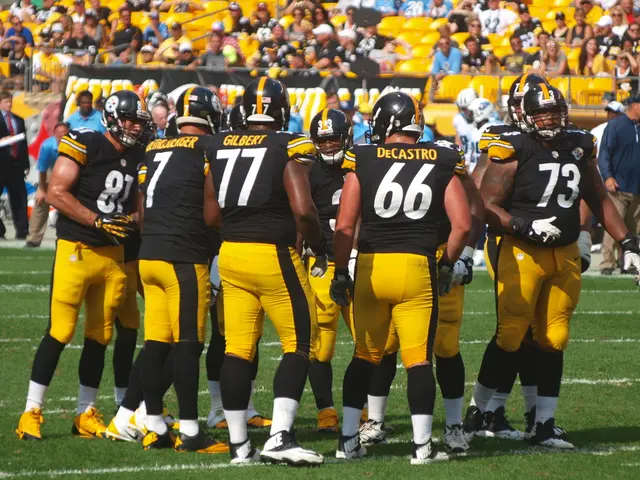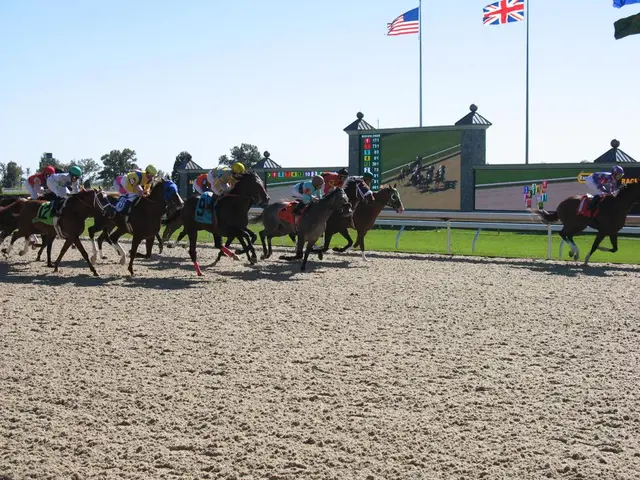"Inspite of their anxieties, churches in Lebanon innovate ways to provide shelter and compassion to the displaced population"
In the heart of the Middle East, Lebanon finds itself in the midst of a conflict that has left deep scars on its people and its land. The Near East Theology School in Beirut, a beacon of hope and learning, has taken emergency measures to ensure the safety of its students, staff, and faculty, equipping the building with emergency supplies and upgrading security. Amidst the chaos, Martin Accad, the school's president, has expressed faith in the resilience of the Lebanese people, stating that they tend to pull together in the face of danger, and that God always gives them the necessary courage in such times, so they do not feel intimidated or overly fearful.
The conflict between Israel, Gaza, Hezbollah, and Iran has caused extensive destruction and human suffering. Lebanese media and human rights organizations like Amnesty International highlight severe destruction in southern Lebanon due to Israeli military operations, including the bombing of villages, civilian homes, and agricultural lands. Residents and local officials provide harrowing accounts of their experiences, underscoring the humanitarian crisis.
Lebanese society and government are deeply divided. The government has taken steps toward disarmament efforts led by the Lebanese Armed Forces (LAF), facing opposition from Hezbollah and its allies, who see disarmament demands as politically motivated. This tension is widely reported and represents a central theme in public discourse. The Lebanese government faces significant pressure from international actors conditioning aid on disarmament, which some view as external interference that threatens Lebanon’s sovereignty. Media and societal debates address how these conditions affect Lebanon’s devastated economy and fragile political stability.
The church's role in the conflict is to practice peacemaking by de-escalating feelings of hatred and revenge among new generations. Evangelical churches in Lebanon have adopted an instinctive mode of empathy, solidarity, and hospitality toward the displaced. However, some churches are hesitant to host Shiites due to concerns about exposing Christian communities to danger.
Thousands of civilians have been killed and wounded during the conflict, and it has forced more than 1.5 million people to flee their homes. Prayers have been shared for the safety of all Lebanese people, for safe spaces for the internally displaced, especially as winter approaches. The Gospel provides the seminary with the necessary courage to serve in times of violence without feeling intimidated or overly fearful.
As the conflict continues, media and society in Lebanon reflect deep concern and complex reactions, focusing on the extensive destruction, political tensions, and humanitarian impact within the country. Beyond the statements of Martin Accad, these reactions highlight profound regional media polarization, with Israeli-based media often portraying negative views of Palestinian and Lebanese groups, while Lebanese media focus on civilian suffering and geopolitical pressures on Lebanon.
In this time of crisis, prayers have been shared for a de-escalation of the war, for longer-term peacebuilding initiatives at the grassroot level, and for the global church to experience deep compassion and give generously to support the Lebanese church's work among the suffering. The church in Lebanon has been called upon to have courage, so that Christians would not flee the country but remain to serve its people.
[1] ILTV (2021). Israeli media coverage of the conflict. [2] Al Jazeera (2021). Lebanese political divisions and disarmament efforts. [3] Amnesty International (2021). Human rights report on the conflict. [4] BBC News (2021). Lebanon-Israel conflict: Media coverage from different perspectives. [5] Reuters (2021). Continued Israeli airstrikes and shelling in the south.
Read also:
- United States tariffs pose a threat to India, necessitating the recruitment of adept negotiators or strategists, similar to those who had influenced Trump's decisions.
- Weekly happenings in the German Federal Parliament (Bundestag)
- Southwest region's most popular posts, accompanied by an inquiry:
- Discussion between Putin and Trump in Alaska could potentially overshadow Ukraine's concerns








